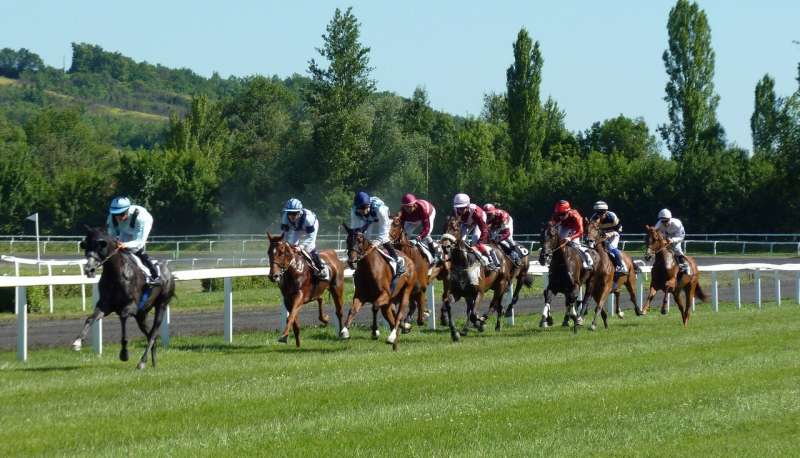Home » Health News »
Around 1 in 6 sports bettors started a new form of gambling during the initial COVID-19 lockdown

Around one in six sports bettors started a new form of gambling during the initial COVID-19 lockdown, and one in three placed bets more frequently, according to a new study.
Experts from the Universities of Glasgow and Stirling explored gambling behaviors of those who regularly bet on sports before and during the first U.K. lockdown between March and June last year, when professional sports were suspended, and gambling venues closed.
The research team found that, for the majority of regular sports bettors, lockdown led to a reduction in gambling whilst there was very little live sport to bet on—with around one third stopping betting completely.
However, 17.3% of men and 16.5% of women started a new form of gambling during this three-month period, while 31.3% of men and 30.3% of women increased their frequency of gambling on at least one activity. Those who started a new form, or increased the frequency, of gambling during lockdown are potentially vulnerable to gambling harms, the study found.
The findings—published in the journal Addictive Behaviors—will help inform the review of the Gambling Act 2005, currently being conducted by the Department for Digital, Culture, Media, and Sport.
Dr. Heather Wardle, of the University of Glasgow’s School of Social and Political Sciences, said: “Unsurprisingly, our study found that, during the initial lockdown in March 2020, with the closure of gambling venues—such as bookmakers—and a huge reduction in live sports, there was a marked decrease in sports gambling.
“However, some regular sports bettors started new forms of gambling, or increased how often they bet on other things, and these changes were associated with increased risk of gambling harms.
“These findings are important and suggest that regulators and the industry should be looking closely at how behaviors are changing during national lockdowns and doing more to protect people from harms.”
Professor Kate Hunt, of the University of Stirling’s Institute for Social Marketing and Health (ISMH), said: “Our study found that, among regular sports bettors, restrictions in supply during lockdown generated changes in behavior, including reductions in gambling for the majority, who did not appear to seek out other ways to gamble.
“However, when examining online sports betting, a minority continued to bet as some horse races and sports were still available in other countries. Furthermore, some people also started gambling on new types of activity—including the lottery and virtual online sports—that they had not previously engaged in.
“Our findings are just one part of a broader study which also looks at people’s experiences and the advertising and marketing of gambling during the first U.K. lockdown. The findings will provide important food for thought about how gambling and the gambling industry are best regulated—and, importantly, provides timely evidence to inform the ongoing review of the Gambling Act 2005, currently being undertaken by the U.K. Government.”
Results
Using the online survey platform YouGov, the researchers surveyed regular sports bettors—those who had previously placed a bet on sports (including horse races) at least once a month—to understand their gambling behavior pre-lockdown (between December 2019 and February 2020) and during lockdown (March 23—mid-June 2020).
The participants—3,084 men and 782 women—were also asked about their gambling attitudes, awareness of gambling marketing, experiences of gambling harm, and any health and lifestyle experiences associated with COVID-19.
The study found 29.8% of male and 33.4% of female sports bettors stopped gambling altogether during lockdown. However, around one in six regular sports bettors, started new gambling activities—5.4% male sports bettors started playing lotteries and 3.5% began betting on virtual sports and races. Among female sports bettors, 6.8% started betting on virtual sports and races, 6.5% began playing lotteries, and 3.4% took up online bingo.
For male sports bettors, problem gambling was a greater risk among those who had started a new gambling activity during lockdown, and for women, moderate risk or problem gambling was higher among those whose frequency of gambling on any activity increased during lockdown.
Prior to lockdown, online sports betting was the most commonly reported gambling activity among this group (78.8% men, 61.4% women), followed by the lottery (62.1% men, 65.2% women), online betting on horse or dog races (43.2% men, 50.5% women) and sports betting at a bookmakers (26.7% men, 16.1% women).
For these activities, and most other gambling activities, the percentage of the sample participating in each activity was lower during lockdown. Only online betting on virtual sports or races showed a significant increase during this time.
Christina Marriott, chief executive of the Royal Society for Public Health, said: “Living under lockdown had drastically altered the way we live, with negative consequences on health and mental wellbeing becoming a concerning side effect of the pandemic. We know, for example, that sports bettors adapted their gambling habits, with many having turned to new forms of gambling activity.
“Protecting those at risk of gambling harm must be central to the updates to the U.K.”s gambling laws. Our Gambling Health Alliance welcomed the online player protections introduced in the first lockdown and called for these to remain in place. This new research further builds the case that regulation must keep pace with the changing gambling landscape, which we will continue to champion in our response to the Gambling Act review.”
Source: Read Full Article


